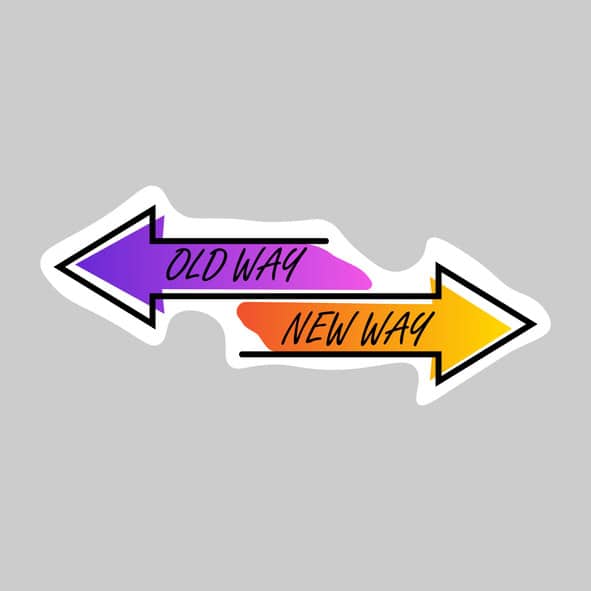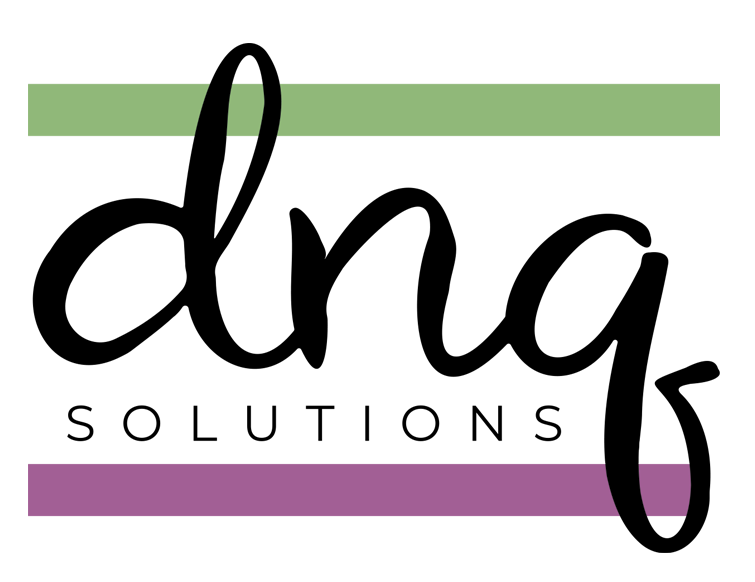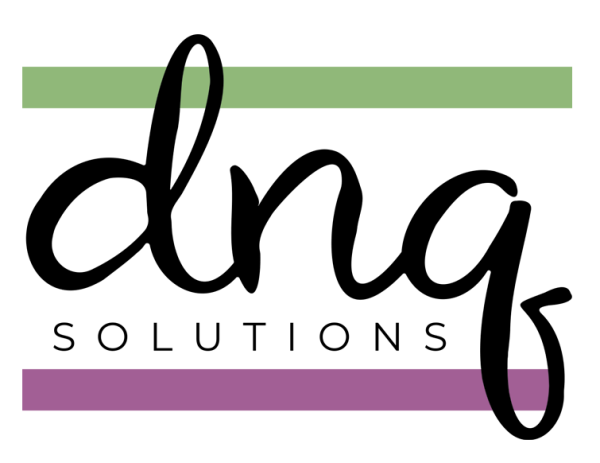
A friend of mine reminded me a couple of weeks ago to stay in the moment and not dwell on past mistakes. You see, I was stressing over the fact that I was making mistakes during the filming of a video for the NAPO 2022 Conference application submission. My friend said to leave the past in the past. There’s nothing you can do about it now, so move on. This was great advice!
I did just that, focusing on the moment and doing my best at that time. That’s all anyone can ask. There’s lots of talk right now about being mindfully present. When you place yourself in the moment you give yourself permission to concentrate on what’s happening now instead of ruminating over what happened before.
The best way to fix a past mistake is to learn from it. Know what went wrong and what went right.
So often clients stress over organizing mistakes. It may be that the strategy wasn’t quite right and needed to be tweaked. Perhaps, they forgot to use it. They are so focused on what went wrong that they give themselves no room to be in the now. It’s important to know what doesn’t work but also important to leave the past organizing mistakes behind so you can move forward.
Here’s how to leave the past organizing mistakes behind.
Identify the past organizing mistakes
Recognize what hasn’t worked for you in the past. Think about why it didn’t work. Ask yourself the following questions:
Is the strategy too complicated? Maybe there are too many steps to take to maintain the organization.
Has something changed in your life or your routine to make the strategy ineffectual?
Is there any part of the organizing strategy that did work?
Can you take the part that worked to create a better organizing strategy?
Sometimes the best organizing strategies are the simplest.
Practice new habits
Be honest with yourself. Is it the organizing strategy that doesn’t work or is it that you are not practicing new habits mindfully?
Sometimes an organizing strategy requires you to change part of your routine to create a new habit.
It takes time to create new habits. You need to mindfully practice and practice until you no longer need to think about them. It can take 3 or more weeks for a new habit to become routine.
Here are a couple of ideas of things that may have gone wrong:
Did you forget that your new habit for dealing with the mail is to open everything? That means email invoices, paper invoices, and scheduling time to finish the task.
Forgive yourself and leave the past organizing mistake in the past.
Think about what went wrong. Did you get interrupted and then forget to go back to the task? This means that envelopes were left here and there. Piles of papers were left by the door, on the dining table, and near the couch.
Now you know what went wrong you can start again.
Gather those piles of papers. Recycle or shred the ones you don’t want. Schedule time to attend to the remainder. It just takes 10 minutes.
Maybe you were interrupted in the middle of going to put the laundry into the dryer. You forgot to return to your task so the laundry sat in the washer overnight and now must be re-washed. Yes. It’s a bother but no worries. It happens. Set a reminder in your phone to put the wash into the dryer. Put another reminder to take the laundry out of the dryer, fold it, and put it away.
Put little reminders (or alarms) on your phone to help you follow through on the steps to complete tasks.
There’s no time like the present
Someone said we call it the present because it is a gift. Live today and leave the past in the past. We all make organizing mistakes. It’s good to acknowledge when something doesn’t work the way we want it to. Think about what went wrong and how you can make it better.
It’s also important to leave the past organizing mistakes behind so you can start again and move forward.
Dwelling on the past organizing mistake will not change it. Tweak the organizing strategy to suit you and the way you live your life.
If this is something you would like help with, consider joining the Clear Space for You virtual support group. Jonda Beattie and I guide the participants to create organizing strategies that work for them and the way they live their lives.
Diane N. Quintana is a Certified Professional Organizer® ,a Certified Professional Organizer in Chronic Disorganization®, Master Trainer and owner of DNQ Solutions, LLC and co-owner of Release●Repurpose●Reorganize, LLC based in Atlanta, Georgia. Contact Diane for a free 30-minute phone consultation.


I just started watching Ted Lasso, and early on, the coach tells his player (who just made a mistake) something like, “D’ya know what the happiest animal is? The goldfish! ‘Cos a goldfish has a 10-second memory.” Focusing and belaboring the point on what doesn’t work is only advantageous insofar as it gets you to identify what you can improve.
Expecting perfection from ourselves is like expecting the weather to be perfect every day; we’re bound to be disappointed. Aiming for excellence, but giving ourselves grace, and as you noted, LEARNING from our mistakes is the key to humanity. A rough attempt gets followed up with many large tweaks. A good first try means smaller tweaks. In Yiddish, there’s a word that comes fairly close to the word “tweak” — “potchke” (pronounced sort of like paaaaah-ch-key”) and I think potchke-ing around with your systems until they fit your life is actually the only way to lead an authentic life. Do – evaluate – potchke (tweak); lather, rinse, repeat.
Choir and orchestra have been great teachers for me in this respect – if you make a mistake, you compound it if you waste a second dwelling on it. After the rehearsal, you can analyze what went wrong but at the time, move on!
It’s so hard to not dwell on mistakes but all of them are learning opportunities if we let them. Great read!
What I love so much about your ideas is they point to adopting a growth versus fixed mindset. Living mindfully and being present is a wonderful way to be. However, things do happen in the past that sometimes need to be revisited and analyzed. Instead of allowing them to haunt and hinder us, we can use mistakes as learning experiences. You’ve shared some practical suggestions to apply to organizing. Ultimately, remaining curious, allowing some grace, and learning from what goes wrong AND right, can help us grow in wonderful ways.
I’m glad you were able to let go of the video filming issue. Next time you can do it differently, but for now, kudos to you for submitting your proposal.
I have tweaked so many organizing strategies for myself, I think nothing works well out of the box. I love helping clients figure out what will work for them and try many different things is inevitable.
In executive-functioning speak, reflecting on a situation is called metacognition. Some people struggle with metacognition and need help problem solving and learning when something goes awry. This is a great checklist for that – Thanks Diane!
Great post and an important reminder for everyone. Organizing systems always need modifications over time. It may work for a bit and stop working after a life change, kids mature, etc. Keeping in mind that life progresses and changes will remind you that systems need changing too. I find it helpful to know that processes can change and evolve because it helps me realize that no system is perfect, and there can always be a better system that hasn’t been invented yet. =)
I just love this because no matter how hard we are trying, it won’t go perfectly. That illustration of being interrupted when doing laundry is so relatable. When my kids were little, I don’t think I did ANYTHING without being interrupted. It is hard to stay focused when this happens. Grace is critical, and then adding those structures and reminders to help us get back on task.
Can’t wait to see you and Jonda at the 2022 conference!
Analyzing the why when some organizational plan did not work is very important. Thank you for reminding us of that.